In this interview, we sit down with Raimonds Selga, co-founder and board member of Kalve Coffee, a fast-growing specialty coffee brand based inLatvi ...
Sovereign Brands Success Story with CEO Brett Berish
Written by: Carolyn Young
Carolyn Young is a business writer who focuses on entrepreneurial concepts and the business formation. She has over 25 years of experience in business roles, and has authored several entrepreneurship textbooks.
Published on April 1, 2024
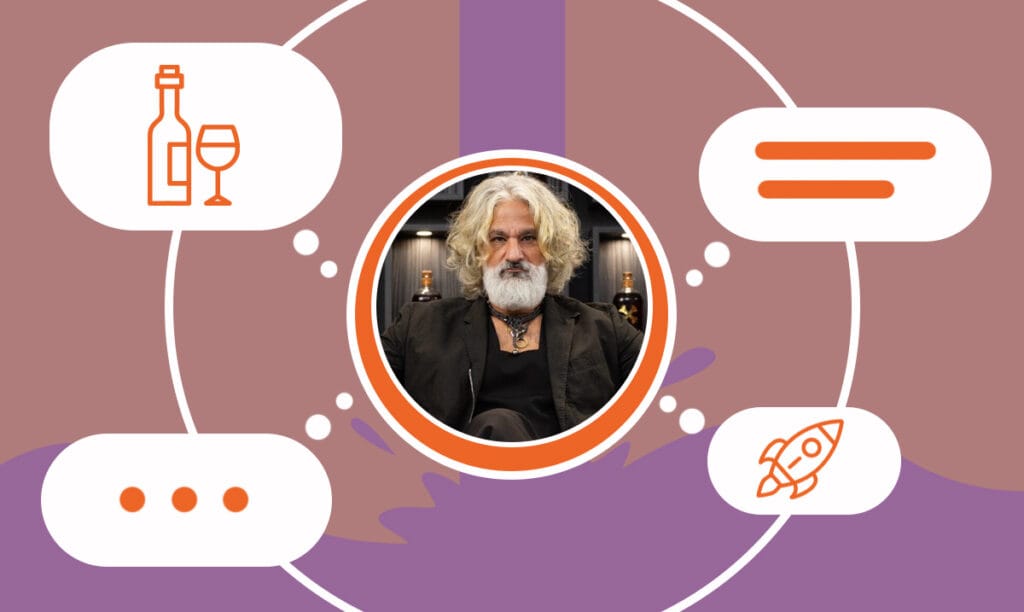
In this interview, we delve into the entrepreneurial journey of Brett Berish, the CEO of Sovereign Brands, wine & spirits company. Brett shares his experiences in brand development, international marketing, and maintaining product quality, offering valuable lessons that can be applied across various business sectors.
Whether you’re a startup enthusiast or an established business professional, this interview promises to offer enriching perspectives and practical advice for navigating the dynamic landscape of today’s business world.
Origins of Sovereign Brands
SBS – What inspired the creation of Sovereign Brands?
Brett – I guess it’s easy. It was my family. My father was in the liquor industry and spent 45 years at the same company. If you sat at our dinner table, if he was ever home, he would talk about the industry. There was a sparkle in his eye when he would get emotional, and he loved what he did. I wanted to be my father from a business standpoint. But my mother’s my inspiration. My mother’s my heart. She’s the fighter. She’s fearless. She’s tenacious. She never gives up. It’s because of her I’m successful.
However, I don’t think my father wanted me or my brothers (who are also doing the same thing) to be in this business. As a parent, you end up hoping for your kids to do something easier than you did. To him, this wasn’t easy. So, it’s kind of a love-hate relationship, if that makes sense.
Product Development Strategy
SBS – How do you identify which products or brands to develop?
Brett – The easy place to start is drinking the category. That’s where it starts, and that’s where it ends. I get comfortable with the category based on tastes and then come up with an idea of what I hope it could taste like, and I look for ways to match that. With my rum Bumbu, I tasted the category and got comfortable with the other brands. There was a taste profile that we were looking for, and we tried to get there.
I tend to choose categories other people don’t like, or that are not hot or trending. I like going into categories that seem very difficult, that no one wants to do, and that are big, old, and slow because I can change the category.
I also have a philosophy — if something’s hot and I’m not already in it, it’s too late. I don’t want to jump on a trend because I want to be the trend or ahead of the trend. Whether it’s Belaire that competes in champagne or Bumbu, our rum, all of my successful brands have one thing in common — everyone said it wouldn’t work. It’s because they were not the trendy things. However, four or five years later, they are the trend, and therefore, everyone’s reaction is, “Wow, look how successful that category is now!”
If you don’t believe in it, if you don’t put your heart, soul, sweat, guts, and blood into it, it’s not going to work. So I need to believe it. In most big companies, no one is the fall guy. With me, I want to be the fall guy, and if it doesn’t work, I want it to be all my fault. That’s where I get power.
Challenges in the International Market
SBS – What challenges did you face in maintaining a presence in the international beverage market?
Brett – It was challenging financially. I love to tell those stories. I lost everything. I had my house foreclosed on, I stopped paying taxes to the IRS so I could put more money back into the business, and the IRS swept my bank account.
What I’ve learned is that I wish I knew what I know now, and what I know now is that mistakes are why I’m successful. I’ve learned so much based on the decisions I made. I have lots of philosophies I believe in, and one of them now, or it has been, is that sometimes not having a plan is a good plan because it allows you to be flexible. It will enable you to pivot constantly and see what’s working and what’s not. Because if you hold on to a plan too long, if you’re wrong, you’re going to be wrong throughout it. That’s where my first four, five, six years went. There were constant mistakes, and it’s because of those decisions that I’m successful today. That’s the opportunity to learn every day.
I was this person, and I get business plans all the time today, showing a brand or company that needs funding or wants to grow. It’s all about the exit, all about when they cash out. That was my biggest mistake because I was thinking about the exit before I even started, and that’s the wrong side of an entrepreneur. The key is to think about how to make money and how to make a great brand because that’s what it’s about. The other stuff will come and happen, but it’s about what you can do in that medium to short term to get yourself there. That’s most important.
Balancing Quality and Scale
SBS – How do you maintain the quality and uniqueness of your products while scaling production at the same time?
Brett – I think of brands like fashion, couture, and street culture. The key is never to change the taste profile, the bottle, the look, and the design. A hundred years from now, it should stay exactly the same, but the brand has got to evolve. Fashion is a great representation of that. You have to stay relevant, you have to stay constant, you have to stay hip, and you have to stay cool. We’ve been very good there by just letting the brand keep evolving. It’s like my kids — as they get older, they change a little bit, and you have to change with them. That’s what a good brand is.
Evolution of Marketing Strategies
SBS – What marketing strategies have been effective in gaining popularity and new customers, and how have they evolved over time?
Brett – Branding is very organic, and you learn from how your consumers react to it. You understand what it’s good at and how to lean into it. For me, marketing is an evolving thing. We call our rum the greatest of all time (G.O.A.T.). It’s part of the marketing, but the beauty was (and is) that wasn’t the original marketing plan for the brand. That evolved, and we saw a way to use it. To me, it’s not about a philosophy. It’s more about learning about the brand and figuring out what it is good at and how people consume it.
As an example, in Turkey, they’re consuming my rum by doing shots. That’s fantastic, and I want to lean in on that. That’s now a marketing plan. But that didn’t come from me telling them what to do with the brand. It just happened. In France, the same thing happened. They want to do shots. To lean in on what works, you must stay close to the brand yet step away from it so you’re not dictating too much. You must let the consumer decide what they want to do with it.
I believe high-end brands like mine are global. People always ask me if the consumer is different in Kazakhstan, Lithuania, or the US. No, it’s all the same. Consumers want luxury, quality, and the best, and they want to be able to have that wherever they go. I think of my brands as global brands that can survive, live, and prosper in all these markets.
We’d have a running joke in our company. The biggest market for our rum Bumbu is the United States. Outside the US, the number one country for us is Canada. However, no one from my company has ever been there. That just shows that brands can sometimes go much further. Had we not let it go there, we would never have had that opportunity. Sometimes, people try to control brands too much. They overthink it. They overdo everything. I just want to let things breathe, and we’ll learn from it.
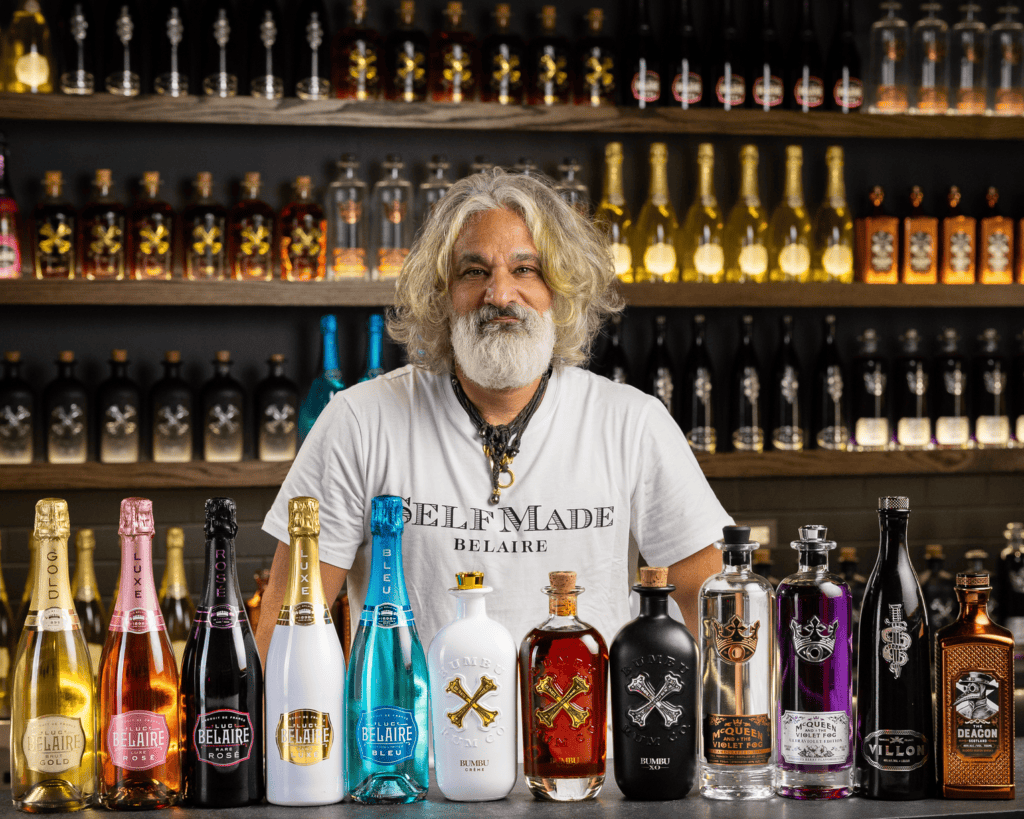
Managing Distributor Relationships
SBS – How do you maintain good relationships with distributors?
Brett – It’s critical because we don’t sell directly to an account. We sell to the distributor, who then may sell to a wholesaler, who then may sell to the trade, a bar, or a restaurant.
I’m an old-school brand builder. I believe in meeting people, talking to people, telling the story. I believe in getting out there. If I’m not leading and willing to do the dirty work myself, no one else is. The key for me, and I tell my team this every day, is to build your army. Build your army of people who support you, and you want to support them. That’s what we do every day.
Regulatory Navigation
SBS – How do you navigate the regulatory challenges associated with the alcoholic beverage industry?
Brett – It’s an interesting question. This is an example of barriers to entry. Every country is different. Some countries are monopolies where the government controls the market. In some countries, you can’t advertise; it’s considered a dark market. In some countries, like the US, we have franchise states where once you give your brand to a distributor, you can’t get it back. It’s beyond difficult, but at the same time, once you’ve learned it all, that’s a barrier to entry.
It scares people into not wanting to try, but I look at it as it is, and as long as I’m current and understand the good and the bad, I’ll figure it out. To me, it’s just an opportunity. That’s where it always comes back to this organic way of building the brand. In Finland, the alcohol industry is a monopoly; the government owns it. We launched a whiskey brand called the Deacon. It’s one of the best new brands they’ve ever released to their retail stores. That’s not normal in the case of monopolies, but it just shows if someone likes a brand, you can work your way around the process.
Packaging Philosophy and Design
SBS – How do you approach packaging? Do you think the design needs to stand out? Are you involved in the process of it?
Brett – A 100%! We do everything in-house, and we’re very opinionated. At my level (and I’ve always felt this way), I can’t compete with the big guys. I can’t out-advertise them. They have more money and more resources.
Packaging is critical. You could have the greatest product in the world, but if you don’t stand out and no one recognizes you, they won’t pick it up and try it. Packaging is also important because people do identify with it. When they see something, if they like it, they want to touch it. You never know whether it’s a name, logo, bottle style, or the feeling of the bottle when you touch it and hold it that will get a consumer. The more facets you have that make it special, the better chance and the opportunity you have to stand out. This is a funny thing, but with my brands, I hope you always buy two bottles, one to keep on the shelf and one you open. You want to show it off!
Metrics of Success
SBS – How do you measure the success of a product?
Brett – It’s easy — if the account is happy, we’re on the right path. I can’t force success. I can’t make it happen faster than it needs to. When I was younger and started this business, I wanted it fast, and I wanted success everywhere. However, it’s just not the way it usually works. It’s not normal. To me, success is if you’re making progress and building something every day, and if you can make accounts happy and they’re satisfied with your brand, you can live to fight another day. That’s what I’m doing. Success is if the goal was 100 cases in the market and we did 110. The next goal is 150, and we did 170. That’s awesome.
Again, you can’t force it. I have six kids in my family. I can’t make them do better than they are. I can’t make them grow faster. They have to grow at their own pace and be able to do what they can at their level. But we’ll get there. They’ll turn into great kids and be really good at what they do, but I can’t force it. It’s the same way I treat brands. It’s the opposite of how I started, which is why I wasn’t successful.
We’re now the number one premium rum and champagne in the United States, so there’s momentum. Now, something’s happened, and that’s where the pressure starts. Let’s take advantage of this! Let’s take advantage when we have more gold medals than any other brand. Let’s take advantage when we’ve got markets growing faster. This is where data becomes your friend, and you want to leverage that. But in the early stages, there is no data and nothing to leverage, so it’s about just growing a healthy brand.
Insights for Aspiring Entrepreneurs
SBS – What advice would you give people who are just starting in your industry?
Brett – I would give so much advice. It doesn’t have to be my industry, but general advice.
If you’re going to go off and start a business on your own, you have to make the hard decisions. You got to look back and say, “If anybody’s going to screw this up, I want it to be me.”
Rely on yourself. Early on, one of my biggest mistakes was assuming other people would say and do what they said they would do — but that didn’t happen. Even today, when we’re a big company, my attitude is still the same: I assume no one’s going to help me, and I have to make it happen. My team has to make it happen. If you always think that way, you’re always going to be in a better position. Always.
My brother and I have an expression: “Every meeting is a great meeting until you leave the room.” The key is to be constantly connected with people. Otherwise, that great meeting will die out.
The most important advice is to stop asking people for their opinions because you have to trust your instincts. That’s where everyone makes the mistake. You can take their thoughts, but at the end of the day, you make the decision.
Subscribe to Our Newsletter
and gain insider access to cutting-edge business insights and trends.
Featured Resources
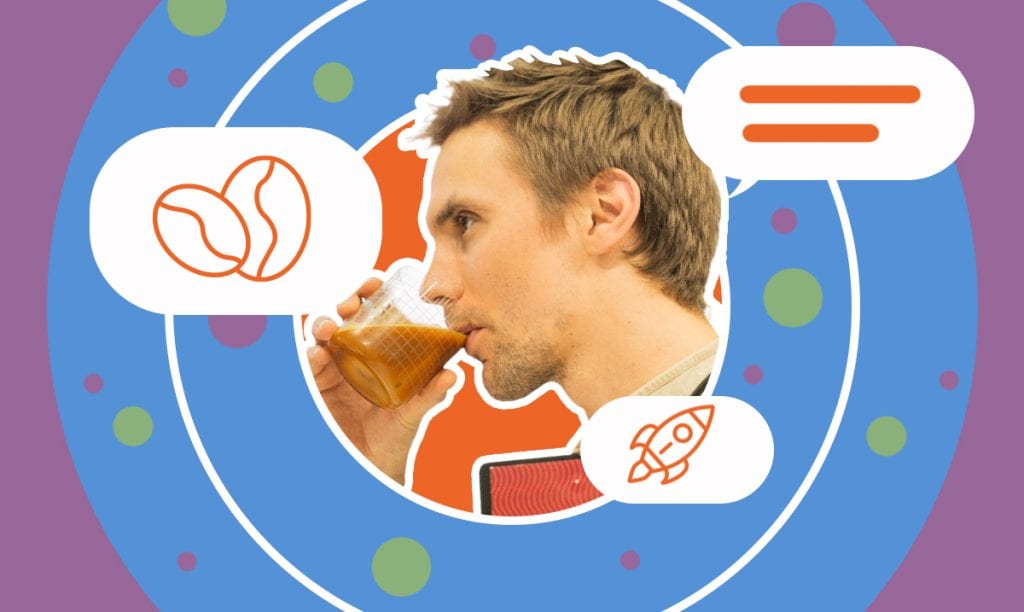
How Kalve Makes High-End Coffee Accessible for Everyone
Published on April 3, 2025
Read Now
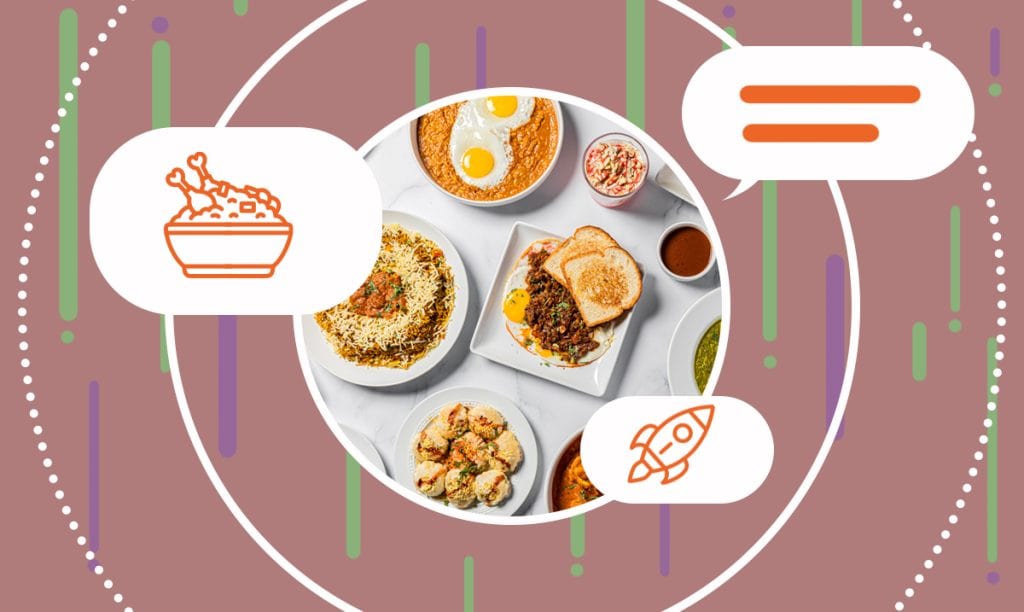
How Eggholic is Bringing Authentic Indian Street Food to the US
Published on February 25, 2025
In this interview, we speak with Bhavana Singh, the visionary behind Eggholic, a restaurant that brings the authentic flavors of Gujarat’segg- ...
Read Now
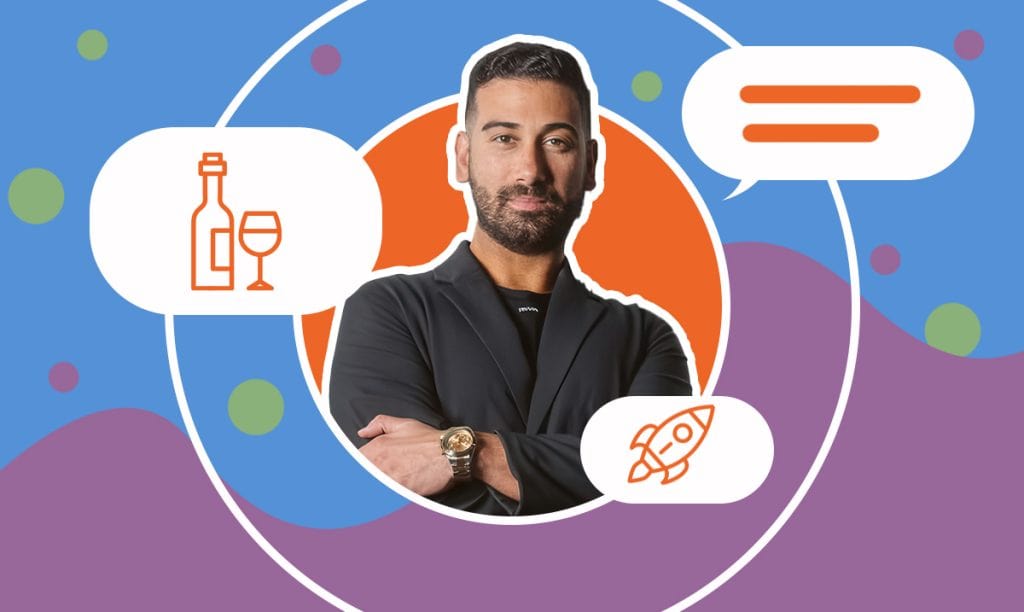
How a Historic Theater Became Houston’s Chic Bar
Published on January 2, 2025
Nestled in the heart of Houston’s Montrose neighborhood, Clarkwood is more than just a chic wine and cocktail bar— it’s a celebration ofhistor ...
Read Now
Comments